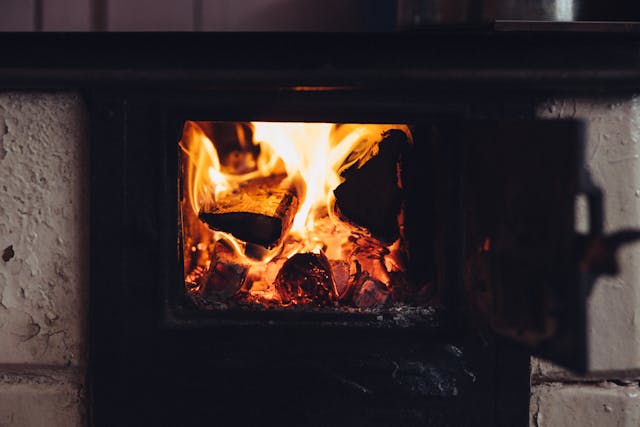In response to recent recommendations to phase out urban wood burners to protect public health, Imaginfires, a leading expert in bioethanol fireplaces, has released key insights and practical advice on cleaner, eco-friendly heating alternatives. This press release outlines the benefits of bioethanol fireplaces as a sustainable solution and offers tips for those looking to minimise the environmental impact of their wood burners.
The recent recommendation from the Royal College of Paediatrics and Child Health to phase out urban wood burners in the UK to protect children’s health highlights the growing concern about air pollution.
While the comforting glow of a wood-burning stove might be hard to give up, it’s important to recognise the environmental and health impacts of burning wood, particularly in urban areas with high pollution levels.
Why Bioethanol Fireplaces Are a Cleaner Alternative
For those who want to maintain the warm ambience of a fire but in a more eco-friendly way, bioethanol fireplaces offer a compelling solution. Bioethanol is a plant-based fuel, making it renewable and far cleaner than traditional wood burning. These fireplaces produce no smoke, soot, or particulate matter—key pollutants that affect air quality and respiratory health—making them a safer choice for urban households. And since bioethanol fires don’t require a flue, they are easier to install and don’t contribute to indoor air pollution.
While bioethanol fireplaces aren’t designed to replace your central heating system, they provide more than enough warmth for colder days while significantly reducing your environmental footprint. As stricter regulations on wood burners are introduced to meet the UK’s net-zero goals, bioethanol fireplaces are a sustainable investment that helps safeguard your family’s health and contributes to cleaner urban air.
If You Can’t Curb Wood Burners Completely: Tips for Being Eco-Friendly
For those who still prefer or need to use their wood burners, it’s possible to minimise their environmental impact by following a few sustainable practices. Here are some key tips to ensure your wood burner is operating as efficiently and cleanly as possible:
- Use Your Log Burner Sparingly: Once your space feels warm, stop using your Log Burner. Overuse contributes unnecessarily to air pollution.
- Regular Maintenance: Have your chimney or flue cleaned professionally at least once a year. This helps the stove burn more efficiently, reduces pollution, and ensures safe operation.
- Upgrade to an Ecodesign Model: If your wood burner is over ten years old, consider upgrading to a more efficient model that meets Ecodesign standards. These stoves emit fewer pollutants and are more efficient.
- Build Fires Slowly: Avoid overloading your stove with logs, which can lead to smoke. Also, refrain from using accelerants like gasoline, which release toxic fumes.
- Install a Flue Liner: A flue liner improves airflow, helping your fire burn more efficiently and producing less smoke.
- Burn Dry Wood: Moisture in wood leads to more smoke and less heat. Ensure your firewood is dry by storing it properly and checking with a moisture meter before burning. Wet wood creates excess emissions.
- Source Sustainable Firewood: Purchase firewood certified by the Forest Stewardship Council (FSC), which ensures trees are replanted and forests are managed sustainably.
- Avoid Burning Toxic Materials: Never burn paper, cardboard, plastic, or treated wood, as they release harmful chemicals into the air.
- Use Smaller Logs: Smaller logs burn more efficiently and produce less smoke than larger pieces.
- Try Alternative Fuels: Consider alternatives to wood, like coffee logs or paper bricks, which produce fewer emissions while still delivering heat.
Conclusion
While bioethanol fireplaces present a cleaner, more sustainable alternative to wood burners, we understand that some households may be unable to make the switch immediately. By adopting eco-friendly practices, from maintaining your stove to using sustainably sourced firewood, you can still enjoy the warmth of a traditional wood burner while minimising its impact on the environment and air quality.
For more information, please see the Imaginfires blog: https://www.imaginfires.co.uk/blog/environmental-impact-of-log-burners/
Please credit https://www.imaginfires.co.uk/
Help keep news FREE for our readers
Supporting your local community newspaper/online news outlet is crucial now more than ever. If you believe in independent journalism, then consider making a valuable contribution by making a one-time or monthly donation. We operate in rural areas where providing unbiased news can be challenging. Read More About Supporting The West Wales Chronicle
























